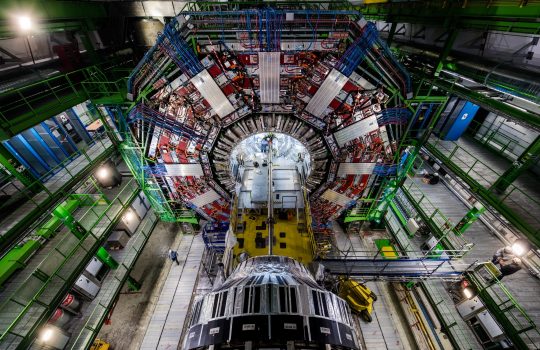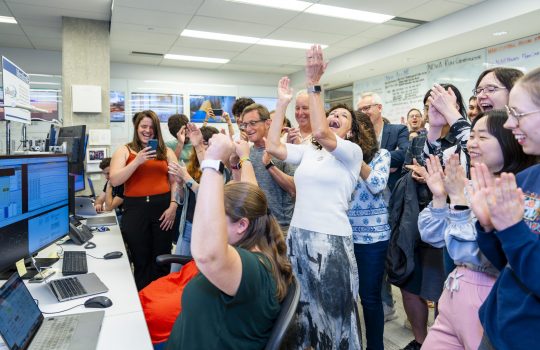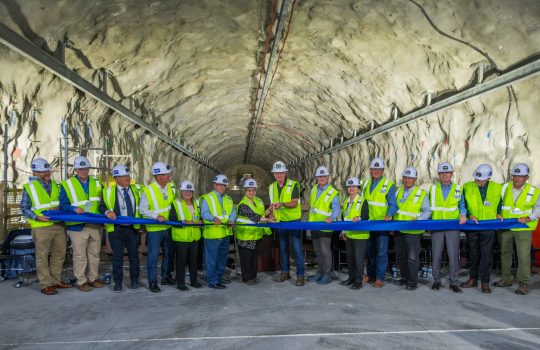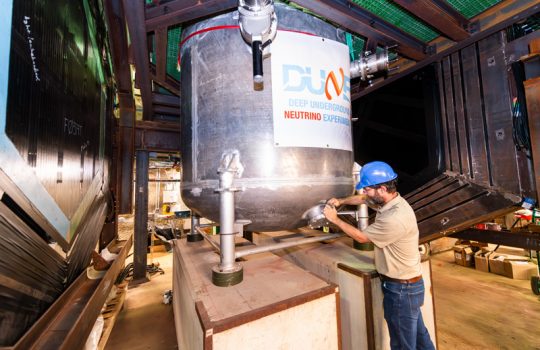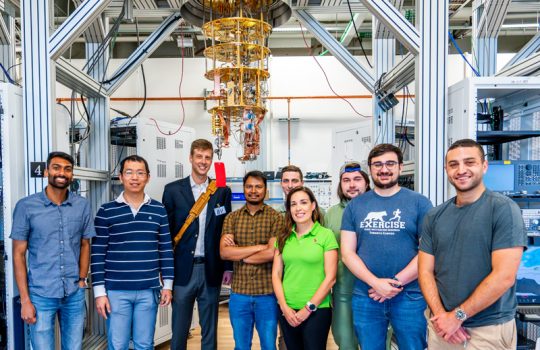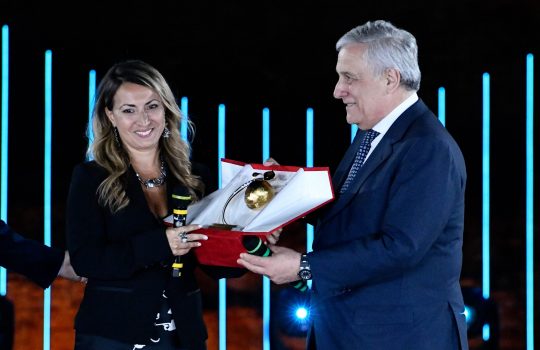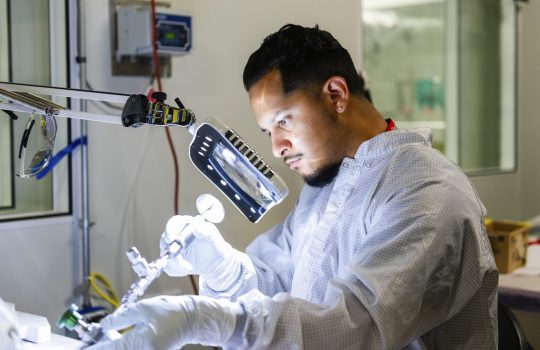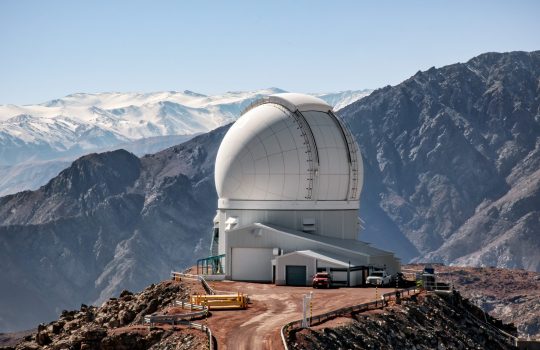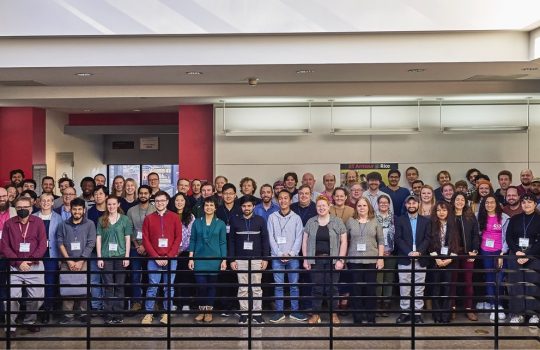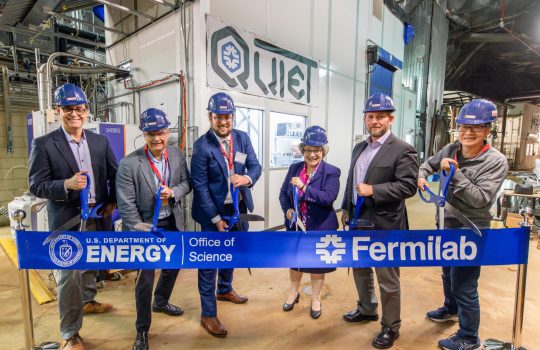New results from the CMS experiment put W boson mass mystery to rest
Physicists on the CMS experiment announce the most elaborate mass measurement of a particle that is notoriously difficult to study and has captivated the physics community for decades.
First neutrinos detected at Fermilab short-baseline detector
After years of preparation, the first neutrinos have been observed by the Short-Baseline Near Detector collaboration. The data SBND collects will expand our knowledge of how neutrinos interact with matter and will be used to search for evidence of new physics.
Underground event marks excavation completion on colossal caverns for underground neutrino laboratory, DUNE
A massive milestone was celebrated on the international Long-Baseline Neutrino Facility/Deep Underground Neutrino Experiment that will tell us more about the universe and how it works.
DUNE scientists observe first neutrinos with prototype detector at Fermilab
The prototype of a novel particle detection system for the international Deep Underground Neutrino Experiment successfully recorded its first accelerator neutrinos, providing a first look at the ability of this innovative technology to handle large numbers of the mysterious particles’ interactions.
IBM intends to partner with Fermilab’s SQMS Center to advance critical quantum information science initiatives
IBM plans to join Fermilab’s SQMS Center to further accelerate critical technologies and applications of superconducting quantum systems and expand quantum workforce development programs.
Fermilab’s Anna Grassellino receives prestigious Marisa Bellisario Award
The Italian Marisa Bellisario Award was presented to Anna Grassellino, an Italian and American scientist with Fermilab who was recognized in the international category for her scientific work and leadership.
Fermilab announces new high school student technician apprenticeship and lab engineering innovation support
DOE Office of Science will support two new areas of growth for Fermilab: high school student apprenticeship to expand the technicians’ teams and lab engineers in the
development of innovative ideas.
Revived technology utilized to count individual photons from distant galaxies
Enabled by a U.S. Department of Energy program, a collaboration of scientists from Fermilab, UChicago, NOIRLab and other institutions demonstrated that skipper-CCD detectors can be utilized to improve cosmology research
New NOvA results add to mystery of neutrinos
The international collaboration presented their first results with new data in four years, featuring a new low-energy sample of electron neutrinos and a dataset doubled in size.
Fermilab opens new QUIET underground quantum information science laboratory
The new state-of-the-art QUIET laboratory will study the performance of qubits isolated from cosmic radiation. Its above ground counterpart is LOUD and together they will enable controlled experiments of quantum sensors.

